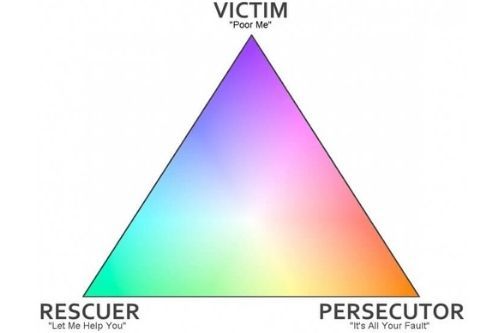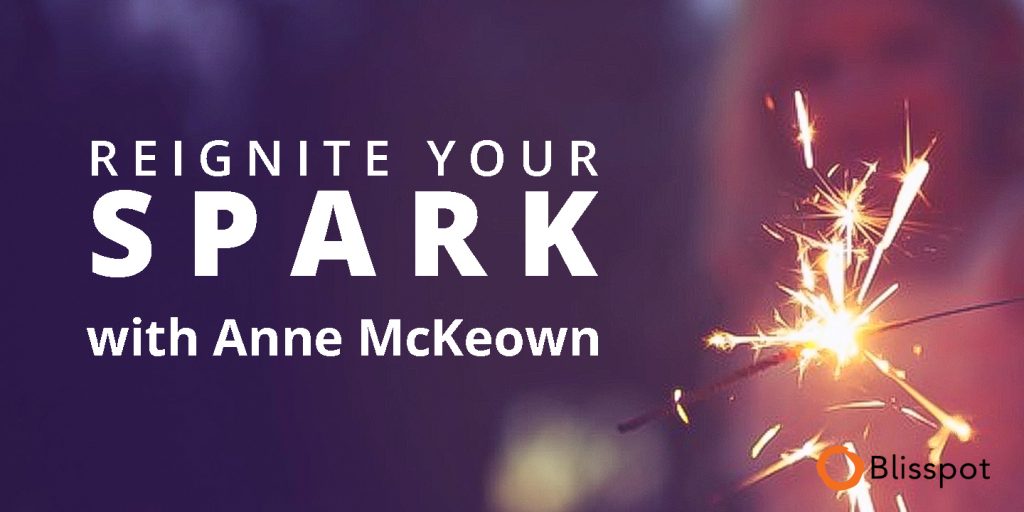Do any of these personalities live in your home? The truth is that we are all guilty of playing some of these roles at different times, depending on the situation or the people involved. Recognising these behaviours in ourselves is the first step to having harmony in our lives, our workplace and our home. Teaching this awareness to our children is one of the greatest gifts we can give them.
You may have heard of The Drama Triangle. It is a relationship tool that was created by Psychiatrist, Stephen Karpman in 1968, as a way to show his clients how destructive their behaviour could be. You may recognise some of the following attitudes in members of your family, business colleagues and even yourself. This diagram is a simple, powerful instrument to use as a reference in relationships.

The three roles on the triangle are Victim, Persecutor and Rescuer. Karpman placed these three roles on an inverted triangle and described them as being the three aspects of Victim, because no matter where we start out on the triangle, Victim is where we end up. No matter what role we play, if we see any of our behaviour on the triangle, we become powerless. Let’s look at the traits of each.
The Victim
Victims feel that life is out to get them; that they are picked on, bullied or unfairly treated. They see life as ‘happening to them’ and believe they have no control over the outcome of the situations they find themselves in. They do not see life as their responsibility (their ability to respond to life is lacking). Victims tend to focus on the past and their problems. They are probably depressed, and their suffering is their identity. They are always looking for more: more love, more attention, more time, or more information. Victims drain your energy. You will hear a victim say, “it’s not my fault.”
The Persecutor
Persecutors often feel angry, frustrated and misunderstood. They like to blame the Victim when things go wrong. They yell, “Why can’t you do this right?” Or mutter under their breath, “You’re hopeless.” Persecutors punish others through their destructive behaviour: dominating, controlling, nagging, blaming, humiliating. Persecutors need to disengage, focus on taking care of themselves and get their own lives sorted.
The Rescuer
Rescuers like to save Victims from Persecutors. They see themselves as peacemakers and believe they have all the answers. Their own lives are often a mess, but they spend hours attempting to change and control others. They wear a mask of power and see themselves as superior, confident and in control. Rescuers can become frustrated with always being the one to save the day, and they eventually get resentful that the Victims can’t take care of themselves. However, without someone to save, Rescuers have no sense of identity. You will hear them complain, “Why do I always have to…..”
Breaking the cycle
Understanding these patterns is a good first step to breaking the negative cycle. This awareness alerts us to the fact that we do have a choice. We can choose to break this cycle by not partaking. Most Victims do not want to change, they get attention by behaving the way they do, and once in the cycle, they convince themselves that their beliefs were right. Even when you do reach out to help a Victim, telling them that they are successful, beautiful, loved, capable, etc. they will argue back, telling you all the reasons that they are not. Richard Bach in his book, “Illusions” sums this up: Argue for your limitations, and they are yours.
Secondly, ask yourself these questions:
- “What part am I playing in all of this?”
- “What is my motivation for acting the way I do?”
- “Am I acting out of choice and giving freely?
- “Am I trying to control/change others?”
- “Do I give with love or do I have hidden expectations?”
- “What do I really want out of this situation?”
- “How else can I go about getting it?”
The key to breaking this pattern is to stop looking externally for answers, solutions, your happiness or your identity and start internal referencing. Take time to get in touch with your authentic self, quiet your mind, reflect, and be open and honest with yourself and others. Get your family to do the same.
Positive, healthy relationships need mutual respect, clear communication, and a willingness from both parties to make it work. It is essential to tell the truth, be inter-dependent and take total responsibility for every aspect of your own life, including your time, your happiness and your success. Teaching our teenagers this at an early age can save a lot of angst now, and later in life.
Try this exercise:
Place three seats/stools in the shape of a triangle and allocate one for the Victim, one for the Rescuer and one for the Perpetrator. Now take the time to sit on each stool and allow yourself to imagine how life feels for that personality/person in the current situation/drama. Once you have done this, place a fourth seat/stool outside the triangle and sit there as an observer watching the other three communicate — you may be shocked!
You are now moving towards self-mastery. You are changing from being at ‘effect’ (he made me, it’s her fault, reaction) to the concept of ‘cause’, (you are causing things to happen in a certain way, you are in control, your actions are creating your reality). This shift in perception is so profound that it can literally move a person completely off the drama triangle. They suddenly decide they don’t want to be part of it anymore. They feel free and empowered to live the harmonious life they were born to live. Try it and see for yourself.








